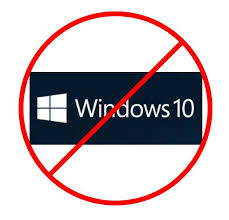I.
Like an electronic Benjamin Button, like a newborn at death’s door, my laptop was only a year old but it was already feeling its age. The sadness of that statement shouldn’t be lost on you, nor should the facts that we’re actually talking about a computer and Benjamin Button wasn’t real.
All the same, whether it had been the two weeks in Europe, the three in Alaska, or something else entirely, the problems were there for my Toshiba. The screen freezes and start-up shudders. The unresponsive keyboard and hypersensitive touchpad. The clicking and clacking. The fucking clucking.
I knew I needed to do something, but what? I didn’t want to take the risk of putting my machine in the shop. Sure, I had the accidental computer death-and-dismemberment plan, but the idea of subjecting my poor Toshiba to the Geek’s Squad’s tender mercies, to losing my office for a week or six, was just too much.
What about the software, though? What about Windows? Maybe the operating system upgrade I’d been putting off for so long would do the trick (or part of it), at least enough to spare me my twice-daily reveries of glare-and-prayer as I cold-rebooted out of this screen stutter or that systemic kvetch? Maybe Windows 10 was the answer?
Looming at the lower right of my screen—a tiny, white, four-part flag, ubiquitously available and purportedly perfect—the new Windows was supposed to be just that; a tanned, toned, rested and ready 10, a Bo Derek of operating systems. Still, I had my doubts, more than doubts really. I had battle scars, trauma, probably a legitimate case of computer-generated PTSD. I’d been through this sort of upgrade (as they insisted on calling it) many times before.
There’d been Windows for Workgroups 3.1, 3.10, and 3.11; Windows 4.0, 4.1, 4.9, 95, 95 OSR 2, 96, 97, and 98; Windows NT OS/2, 3.5, and 4.0; Windows ME; Windows 2000 64-Bit; Windows 2001; Windows XP; Windows Vista; Windows 7 and 8.1. That wasn’t even it, though. There’d been cute codenames for these and other aborted Windows—names for things that we didn’t really need names for, things that had never commercially existed, never taken shape beyond the mind of some faceless developer.
There’d been Winball and Sparta; Snowball and Chicago; Detroit, Nashville, Memphis, Millennium, Razzle, Daytona, SUR, Cairo, Janus, Impala, Neptune, Odyssey, Whistler, Longhorn, Blackcomb, Vienna, and Blue. I’d been through all of them, lived through all of them at least. Sure, there’d been good points (solitaire, Word, post-its, screen savers), but there’d been problems, too. Lots of problems. So, like I said, I had doubts, questions. But who to ask? Who to go to for help…
“You’re having problems,” intoned a woman’s voice. Light and sweet, yet resonant—as though gifted with a permanent background vocalist—the sound was otherworldly but pleasant, beautiful even. It was…angelic.
I turned right and left, looked up, down. But there was no one anywhere, not a soul. Was I having auditory hallucinations? Had I finally, predictably, cracked under the weight of reality? But just as I was doubting my own sanity, I heard it again, realized that yes, definitely, I had lost my mind.
“You have questions?” asked the voice.A tap on the shoulder followed a split-second later.
I turned to see an angel before me (err, behind, actually), hovering a foot off the ground, outlined in a cloudy, gilded nimbus. Beautiful and blonde, she wore rainments of white, silken light. She looked exactly like a young Bo Derek, but with a halo and wings. Wings that went flap, flap, flap.
“Who are you?” I asked.
“I’m your Microsoft guardian angel, Scrimshaw. I’m here to help you with your upgrade.”
“You look exactly like Bo Derek.”
“I know.”
“Why?”
“You’ve seen our advertising. How else would the Customer Support Angel for a product as perfect as Windows 10 look?”
She had a point. But doubts lingered. As I said, I’d been through this Microsoft rodeo more than once. “So, what is this then, like point oh?”
“Point oh?” Scrimshaw replied, smiling winsomely, her wings going flap, flap, flap.
“Yeah, like, point oh, point one, point two?”
“Oh, point oh!?” She laughed.
“Right, that.”
“No problem,” she said.
“Can you be a little more specific?”
She raised a single, tanned finger skyward. She pulled out her IPhone 6 (From where, who knew?), put us on speaker, and dialed up Redmond.
“Scrimshaw,” a team of attendants answered in chorus.
Obviously they’d been waiting for our call ever since Microsoft had first invited me to upgrade. I felt like we’d dialed up Heaven, like we had a direct line to the Almighty. And, hell, I did have a computer support angel flapping her wings right there next to me. How wrong could I be? How bad could things go?
“I have Mr. Baumeister with me,” Scrimshaw offered.
“Good morning, Mr. Baumeister,” they chirruped.
“Good morning…” I turned to Scrimshaw, realizing I didn’t know what to call them. I’d never been confronted with a customer service legion before. This was like Greek tragedy, but without the Greek or the tragedy.
“Staff. You can just call them staff.” She nodded. “Or the Borg if you want?”
“Borg?”
“Little Star Trek joke. Go ahead.”
“Err…Good morning, Staff.”
“Good morning, Mr. Baumeister,” they replied again.
Scrimshaw nodded with satisfaction. “Mr. Baumeister has a few questions before we go through with the upgrade.”
“Of course,” they sang as one.
Me: “This isn’t going to damage my computer, is it?”
Microsoft: “Absolutely not.”
“There are procedures in place, protocols to guard my personal data, to make sure it’s not destroyed in the upgrade?”
“Absolutely, yes. Plus…”
“Plus what?”
“Plus, Scrimshaw will be there to assist should you have any problems.” I turned to her, there she was still holding the IPhone 6, still flapping her wings and smiling. Good old Scrimshaw. “Of course, you’re right, I don’t know why I was being so silly.”
“She’s one of our best and brightest.”
Scrimshaw nodded confidently.
“Will that be all, Mr. Baumeister?” asked the chorus of Microsoft staffers.
“Yes, it will,” I replied. “And thank you.”
“No, Mr. Baumeister, thank you.”
And that was it. The upgrade worked perfectly. And we all lived happily ever after…
II.
There are no angels, Peggy Sue, not for you or me. And if there were—if we lived in a different, better world—those angels wouldn’t be brought to us by the grasping ministrations of the Microsoft Corporation. I can fairly well assure you of that.
Now, this is the truth. Listen…
The part about my Toshiba being glitchy was real, the fact that I did upgrade to Windows 10. The further reality is that Windows 10 killed my computer, took it to a point at which I had no choice but to return my Toshiba to its factory presets. It was either that or brave the Geek Squad, and the laptop privation I’d feared (most likely, based on past experience, with no better outcome than this). Thus, I suppose, I technically upgraded twice: first to, then from, Windows 10.
The truth about the protocols that were supposed to protect my personal data is that they either didn’t really exist or didn’t function properly. (Likely the latter, since Microsoft no longer provides Windows 10 upgrades for my make and model of computer.) As for my own personal protection protocol, the Norton online backup? That didn’t work either.
The worst part of this whole endeavor, worse than the eight hours it took, is the information I lost when my hard drive was wiped. Everything from tax and financial files to drafts of poetry, nonfiction, and a novel, a sort of mythological crime fantasy called Loki’s Gambit.
Now, I hadn’t been happy with the progress I’d made on Loki’s Gambit in 2015. Sure, I’d made headway from the often meaningless page- and word-count standpoints and, perfect or not, there was a sure comfort, a steadiness, in having those pages and words, those bits and bytes. I had the physical proof the year hadn’t been a creative waste. Now I don’t. When I un-upgraded, everything that had resided on that hard drive went zippety-zap.
After I checked my online backups and realized they hadn’t executed properly, my initial response was shock, a sort of semi-stupefied horror. I sat there for a couple minutes, repeating the word “fuck” again and again. But, as I had more of a chance to think about what I’d lost, I began to focus on how unhappy I’d been with my recent work, that beyond the conceptual loss, the piece of Loki’s Gambit that had just died didn’t seem that great. Which got me thinking on a more basic level about what had happened, made me consider whether I’d actually meant subconsciously for it to happen. Was this a sort of unwitting assisted suicide for a novel gone awry?
There are plenty of ways to kill a novel, almost all of them subconscious on some level. There’s lack of skill or talent, luck or work ethic, bad dialogue, scant plot, wooden prose, an unintelligible story, any number of different forms of execution by lack of execution. There’s clinging to a bad idea. No matter how much effort you put into your western romance formed of a thousand linked haikus, it’s not going to work out. Sorry, cupcake.
There’s excessive focus on the superficial, too; making something so pretty or mannered that it can’t stand as a piece of narrative. There’s obsession with theme or overwhelming politicization; also ways of creating a beast that seems viable in your mind, but can’t live in the real world. And then there’s the simplicity of what happened to Loki’s Gambit, death by deletion, making it so that whatever it was, whatever I’d once had, now no longer existed. Which was when I remembered that this had actually happened to me once before.
The first time was just after I’d finished my undergrad. Back in those days, back in the 90’s, there wasn’t nearly as much memory on home computers. You couldn’t store data on them the way you can today. Not that our advanced technology did me much good in my recent Windows 10 debacle. But, at that point, we were still keeping files on these little things called floppy disks, silly little wiggly-woggily things that looked flimsy at the time and seem even flimsier now. And they were flimsy, not only physically, but electronically, in the ease with which they could be destroyed, their data rendered irretrievable by a computer virus or magnetism, heat, cold, or any number of other physical effects. Which was what happened to me. One morning, I turned on my computer, put in my flimsy little flippety-floppety disk, and couldn’t retrieve the files from it. Boom.
Was it a virus or just that the diskette had gone bad? Who can remember now, and who cares really? Honestly, I don’t even remember the title of the book I lost. I do remember that it was a disjointed fantasy of sorts, an allegory for the political climate at the time. Was it any good? Probably not. But that’s not really the point. The point is that it happened, I kept going, and I will again.
There’s a long history of writers growing frustrated with their work and destroying it. Lake Poets burning reams of sestinas. Naturalists burying their heroic epics. Formalists feeding sonnets to their dogs or shredding their odes to use as kitty litter. Oh, those old school poets. So drunk, drug-addled, and depressive. So dramatic!
Was that me, though? Am I a spiritual descendant of some lunatic Lake Poet? Worse still, am I a serial euthanizer of unsuspecting fictions, novels that never did nothing to nobody? Am I just too passive-aggressive to do what other people do, commit out-and-out literary murder by consciously giving up on work the way poets of yore did? Am I too weak for the modern equivalent of literary death conflagrante?
We chase the world, try to catch it and make it do what we want. I’m not just talking about writers, here. I mean all humans. We’re responsive creatures, only proactive with respect to potentialities, not actual events. We never get anything right, not really, not exactly. Because we don’t have the facts, just our guesses, about future time. In the end, though, we deal with what we’re given. We have no choice.
There’s a reason why this piece had such a strange delivery, why it’s deconstructed in a way, beginning as a piece of fictionalized “nonfiction” about me, Windows 10, and an angel named Scrimshaw, why it ends with confessional about failures past and present.
Sometimes I think we write to escape the world, sometimes to understand it, sometimes to do both. Is that because we can’t make up our minds? We both want to—and don’t want to—understand ourselves and our world? There are mysteries in this world and beyond, mysteries like art and the human heart; questions we know we’ll never answer but must seek to answer just the same.
Did I mean to kill Loki’s Gambit? I guess we’ll only know if and when I finish it, if and when I’m able to snatch back what I can from the funeral pyre in my head. And, even then, I won’t bring it all back. I’ll never again see the precise literary creature I deleted. But that’s OK. That creature wasn’t perfect anyway. Honestly, it wasn’t even a creature really, just an artifact born of someone’s mind. Perhaps not as artful as Benjamin Button, but a fictive creature just the same; one you won’t miss. After all, you never really knew it.






